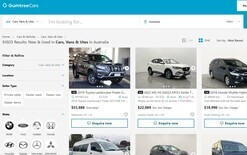Frustration with CCS portal

Members of the Motor Industry Association (MIA) are experiencing “pockets of frustration” in the run-up to the launch of the clean car standard (CCS) on January 1.
This has come about because the scheme’s system “has not yet been fully developed”, although the situation is “mostly okay” when it comes to other matters connected to the CCS, says chief executive officer David Crawford.
He told Autofile Online that due to roll-out delays by Waka Kotahi’s development team, the CCS portal will not be completely up and running by new year’s day.
There are several implications of this for the new-car sector, which include the point of obligation for the standard being when a vehicle is certified for entry into service.
“From a systems development point of view and for new vehicles, this is when the ‘pre-delivery in’ [PDI] section is completed and that completion date is entered into the motor-vehicle register,” explains Crawford, pictured. “The CCS system should automatically pick this up and apply it to the CCS system for each VIN PDI-ed.”
While this occurs at the moment, because for used cars there are no financial implications this side of 2023, the system will not be automatic come January 1.
“The new-vehicle sector and used-car sector have different processes for entry certification,” says Crawford. “The used-car sector is required to manually check each VIN certified before it is entered into the CCS system. We want and need it to be automatic.”
Crawford says from new year’s day until late January or early February, it will be a manual process until the portal is next updated because it can’t perform both functions at the same time.
“This has two issues for the new-car sector. Each account holder will need to have an extra resource on to manually check PDIs as they are entered to get them into the system. Once in the system, the vehicles can then be issued with a warrant of fitness [WOF].
“This creates a delay from PDI to WOF, which is usually done at the same time. This forces a change of processes until the automation feature is enabled. This temporary change of processes is a real cost to distributors and their franchised networks, which – in our view – could and should have been avoided.
“Other than that, the only other factor to be managed is getting vehicles that will incur a fee in 2023 landed this side of Christmas through Customs and entry certified before January 1. Late shipments due to a range of reasons have been creating the same pressures for the new-vehicle sector as it has for used.”





